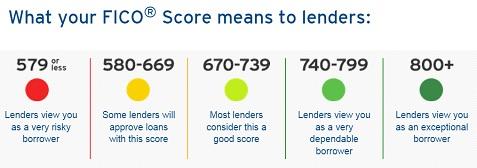FICO Score: Why it matters for home loans - Picket Fence Preview Real Estate

As the saying goes, no pain, no gain. Investing time now to understand your credit report and credit score will pay big dividends throughout your life.
Here's what you need to know:
• The big three credit bureaus primarily focus on what you owe and your repayment history.
• The most commonly used credit score- also referred to as a FICO score- has a range from 300 to 850.
• Standards can change- and in some cases have increased for mortgage lenders- as to what's considered a good credit score.
• There's consensus among experts that 720 is a good score. 740 or higher will typically earn you the lowest interest rates and the best terms.
• Your score helps businesses predict the odds that you'll go 90 days past due (or default) in the next two years on money that they lend you.
Your FICO score is based on five factors, weighted as follows:
• Your payment history: 35 percent of your score.
• Amount of debt you owe: 30 percent of your score.
• Length of your credit history (generally, longer is better): 15 percent of your score.
• Amount of new credit you request (too many requests for credit, especially in a relatively short period of time, is a negative): 10 percent of your score.
• Types of credit you use: 10 percent of your score.

